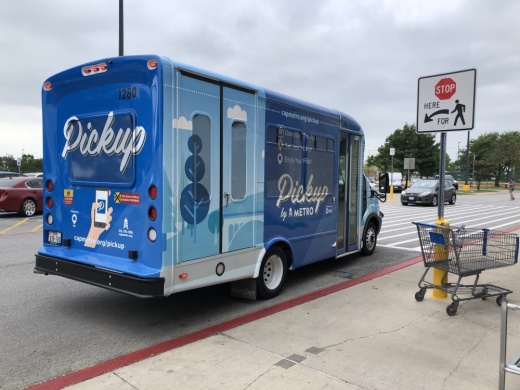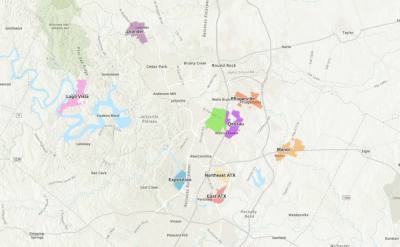Its on-demand service called Pickup is one of those initiatives. Currently in nine zones across the Austin metro area, it allows riders to summon a vehicle through an app or by calling 512-369-6200. The vehicle picks up other riders along the route and aims for a maximum wait time of 15 minutes.
“What we're seeing is that people are interested in trying it out, people who have never really tried transit before,” said Chad Ballentine, Capital Metro’s vice president of demand response and innovative mobility.
Ballentine added that Pickup appeals to riders hesitant to use more traditional forms of public transit, such as buses and trains, following the pandemic, as the mini shuttle buses are lower volume vehicles.
The service launched in June 2019 and most recently expanded to the Dessau area in Northeast Austin on June 15. Five of the zones are within Austin, including East Austin, Northeast Austin, Walnut Creek and Exposition. The other five are spread throughout the city’s northern and western suburbs, including Manor, Pflugerville, Leander and Lago Vista.
Capital Metro plans to expand the service to South Manchaca in late July and Southwest Austin in North Oak Hill in late August, Ballentine said.
According to a 2016 study, people are hesitant to change their commuting habits, unless they experience a major life change, such as moving to a new home or changing jobs. Some experts see the waning of the pandemic as a uniquely large-scale life event that could present an opportunity for Capital Metro to gain ridership.
JunFeng Jiao, an associate professor in the community and regional planning department at the University of Texas, agrees with the idea that public transit agencies have an opportunity to boost ridership.
Jiao studies shared mobility and coined the term “transit desert,” which refers to areas with limited transportation. Pickup is a great opportunity for Capital Metro to create a new group of public transit users, especially as more people start commuting to work, Jiao said.
“If you look at the different nine zones, some of them are quite far away from a major urban center. It will take many years to build a public transit network to that region,” Jiao said. “Rather than waiting, we need to provide some flexible pickup service to meet their demand.”
Beryl Hughes, a 90-year-old part-time internet marketer, is one of those new riders. She started using the service in early June to get from her Pflugerville home to the local Walmart.
“I was quarantining last year, but now I can get outside,” she said. “The service is wonderful.”
She did not use Capital Metro services very often before, but Pickup has been largely reliable and has made getting around considerably easier. Pulling a $1 bill and a quarter from her purse, she added that the service’s affordability makes it particularly enticing.
Rides cost $1.25, and riders can also use their day, seven-day and 31-day passes. Service runs weekdays from 7 a.m.-7 p.m. with some exceptions, and all vehicles are wheelchair accessible.






